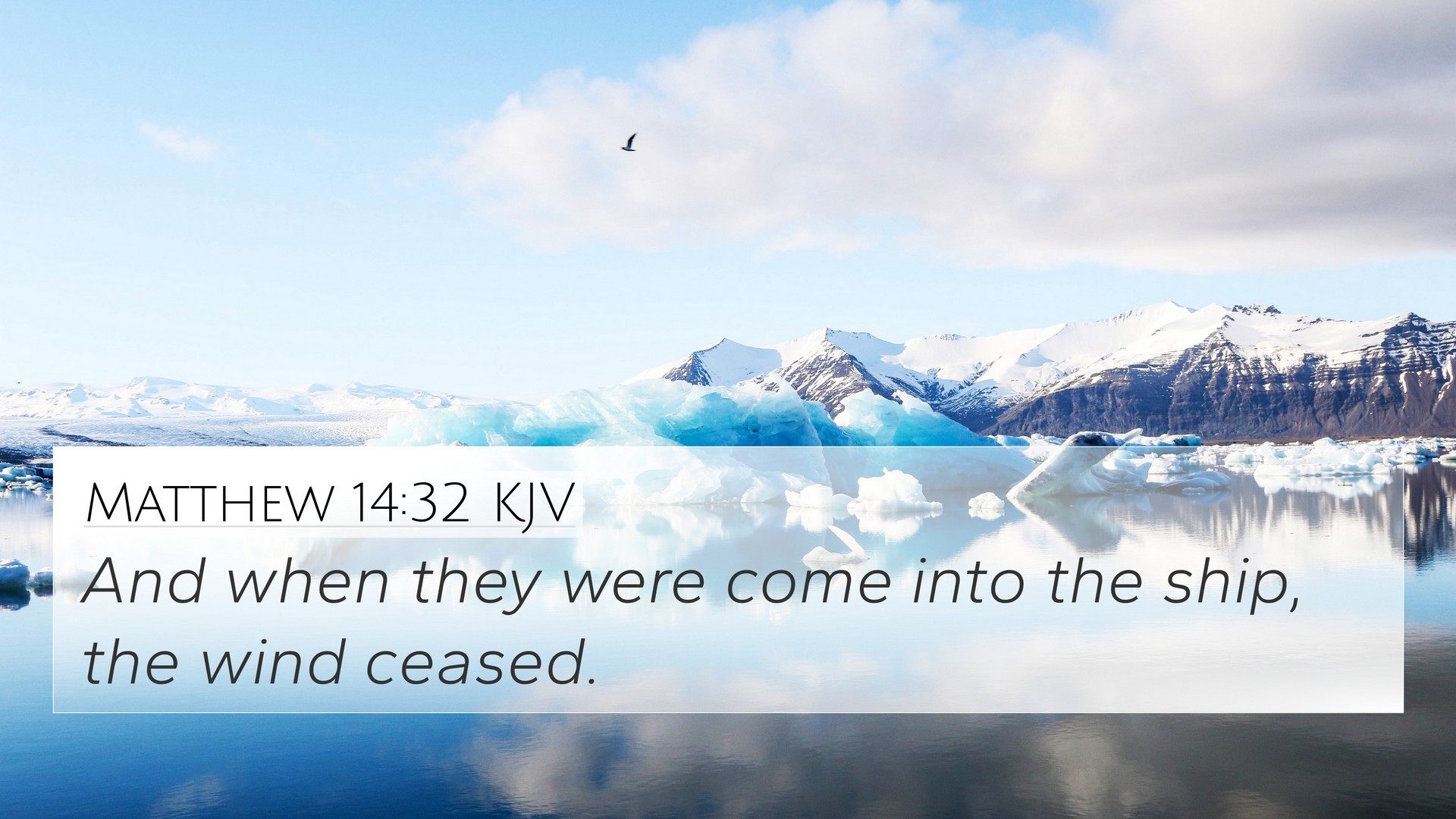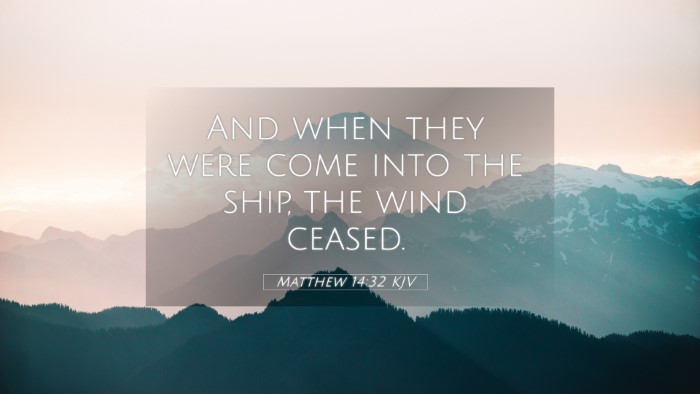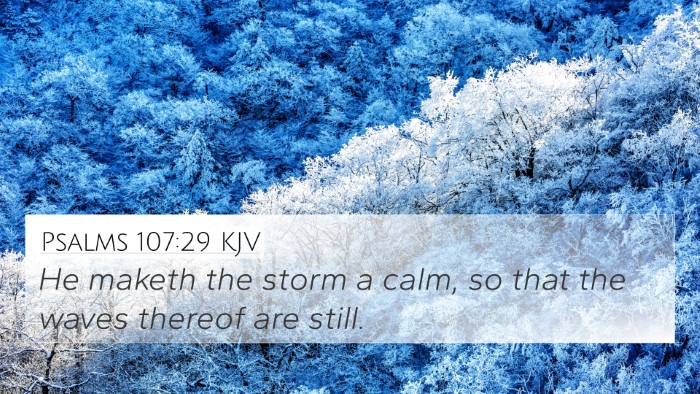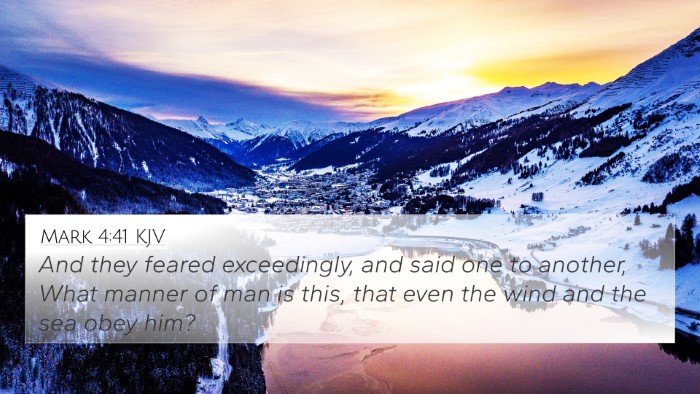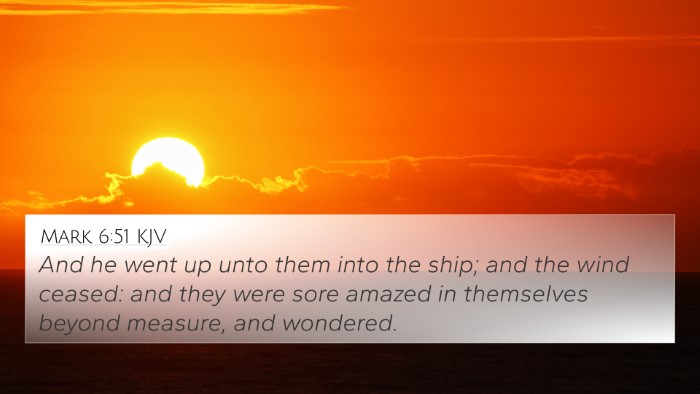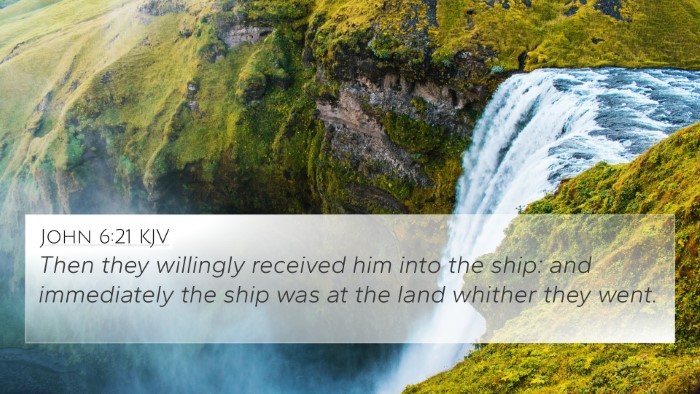Understanding Matthew 14:32
Matthew 14:32 states, "And when they were come into the ship, the wind ceased." This verse comes from the account of Jesus walking on water and Peter attempting to join Him. The implications of this verse are profound and provide a wealth of understanding through various biblical commentaries.
Meaning and Interpretation
The key elements in this verse include the actions of Jesus as He approaches the disciples in the midst of a storm, the miraculous nature of His walking on water, and the subsequent calming of the storm once He and Peter are back in the boat.
-
Matthew Henry's Commentary:
Henry emphasizes the divine authority of Christ, noting that He demonstrates His power over nature not only by walking on the water but also by bringing calmness to the storm. When Jesus enters the boat, the wind ceases, signifying His control over tumultuous situations. Henry highlights that the presence of Christ brings peace to the storms of life.
-
Albert Barnes' Commentary:
Barnes interprets the calming of the wind as a clear demonstration of faith and deity. He draws connections to similar events in the Old Testament where God calms storms (Psalm 107:29). Barnes points out the significance of the disciples recognizing Jesus' true nature as the Son of God through these miraculous occurrences, suggesting that every storm in life can find peace in His presence.
-
Adam Clarke's Commentary:
Clarke notes that this event is illustrative of the transformative power of faith when exercised. He states that Peter's doubt led to his sinking, yet the moment he cried out to Jesus, help was immediate. This brings forth the thematic connection between faith and deliverance. Clarke also emphasizes the importance of recognizing Christ amidst life's tempests.
Related Bible Cross-References
This verse connects with numerous other scriptures that enhance its understanding. Below are several notable cross-references:
- Psalms 107:29 - "He maketh the storm a calm, so that the waves thereof are still."
- Mark 6:51 - "And he went up unto them into the ship; and the wind ceased."
- John 6:21 - "Then they willingly received him into the ship: and immediately the ship was at the land whither they went."
- Isaiah 43:2 - "When thou passest through the waters, I will be with thee; and through the rivers, they shall not overflow thee."
- Matthew 8:26 - "And he saith unto them, Why are ye fearful, O ye of little faith? Then he arose, and rebuked the winds and the sea; and there was a great calm."
- Luke 8:25 - "And he said unto them, Where is your faith? And they being afraid wondered, saying one to another, What manner of man is this! for he commandeth even the winds and water, and they obey him."
- Job 38:11 - "And said, Hitherto shalt thou come, but no further: and here shall thy proud waves be stayed."
Connecting Themes
A comparative biblical verse analysis reveals that the calming of the storm is a recurring theme within the scriptures, highlighting God's sovereignty over nature and His intimate involvement in the lives of believers. Cross-referencing these passages allows us to draw parallels between Jesus' powers as depicted in the New Testament and God's authority in the Old Testament.
Usage of Cross-Referencing Tools
For those studying or teaching the Bible, utilizing tools for Bible cross-referencing can greatly enhance understanding. A Bible concordance or cross-reference guide can aid in identifying connections between Old and New Testament references, assisting in sermon preparation and in-depth studies.
Conclusion
Matthew 14:32 serves as a powerful reminder of faith and assurance in Christ, showcasing that when we allow Him into our "boats," our tumultuous seas can be calmed. Through exploring the connections between Bible verses, believers can gain a deeper insight into God's nature and His guidance during life's storms.
